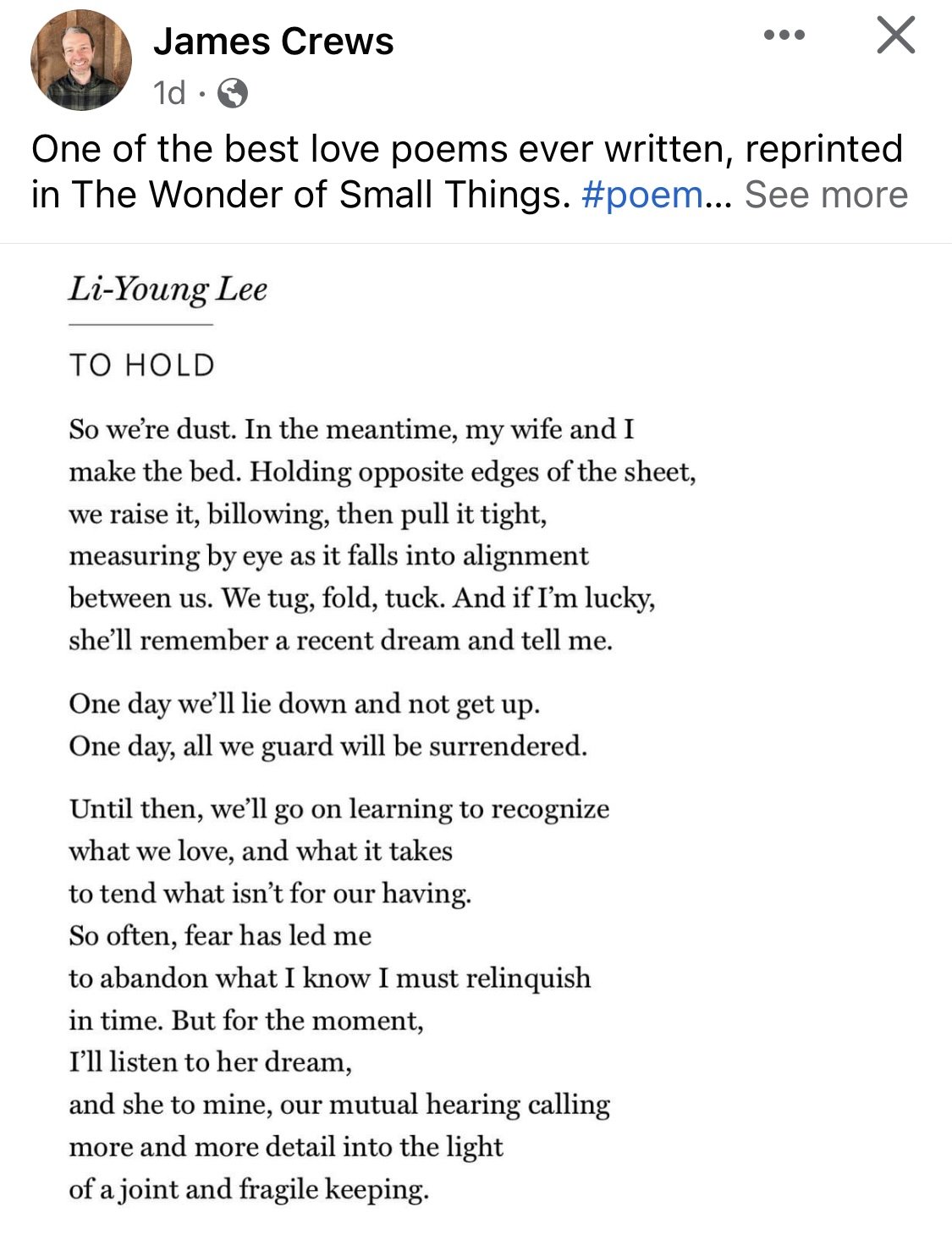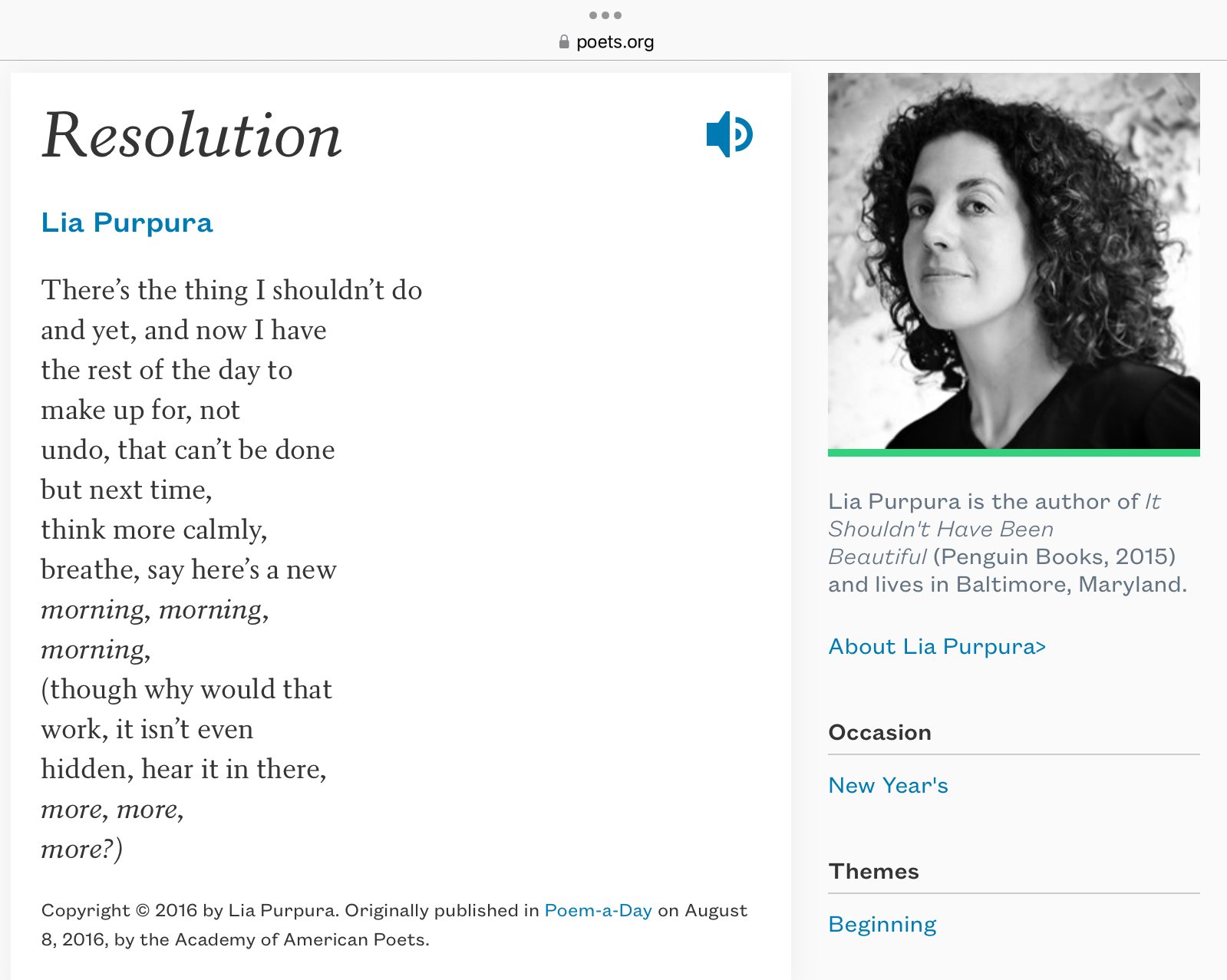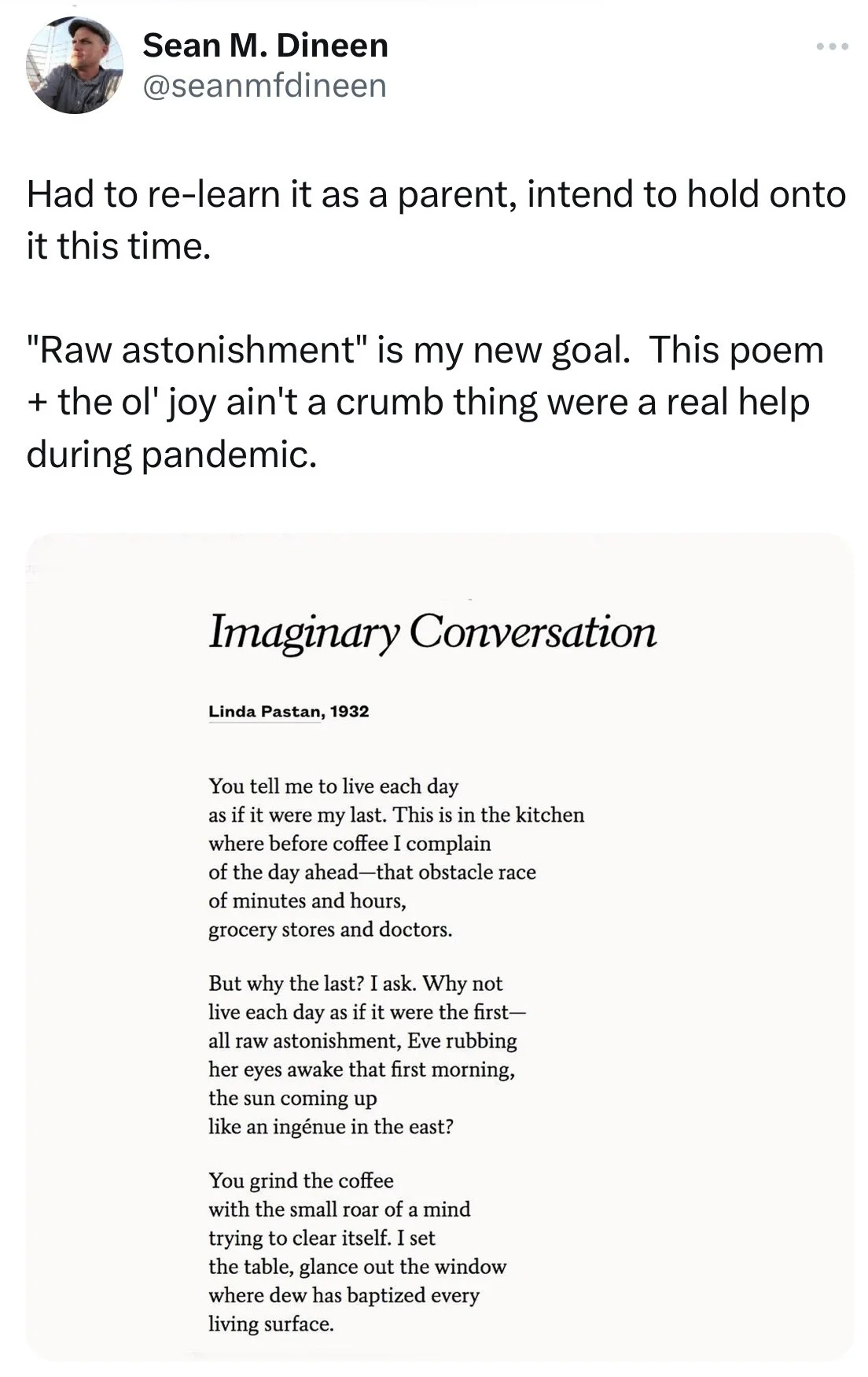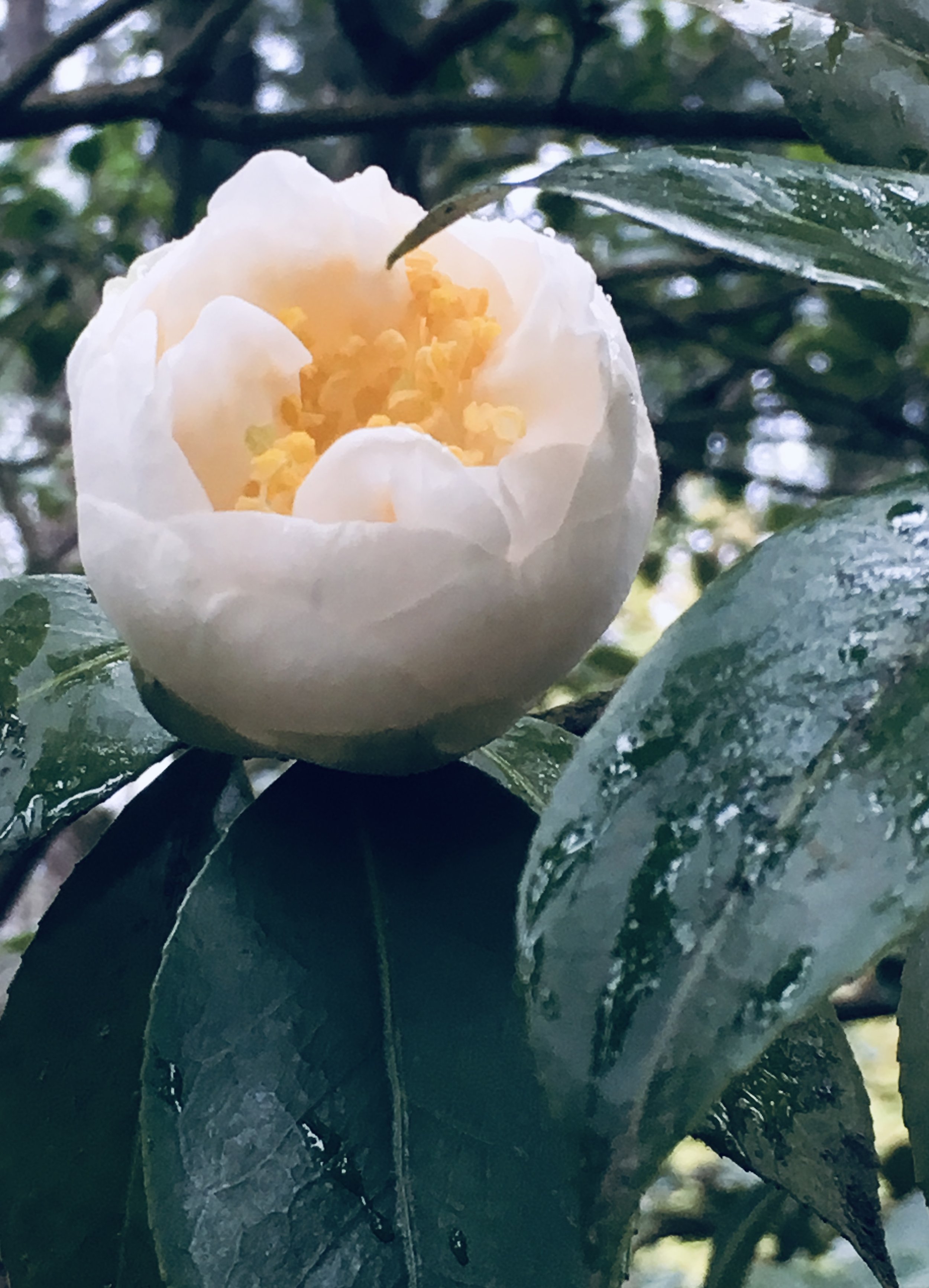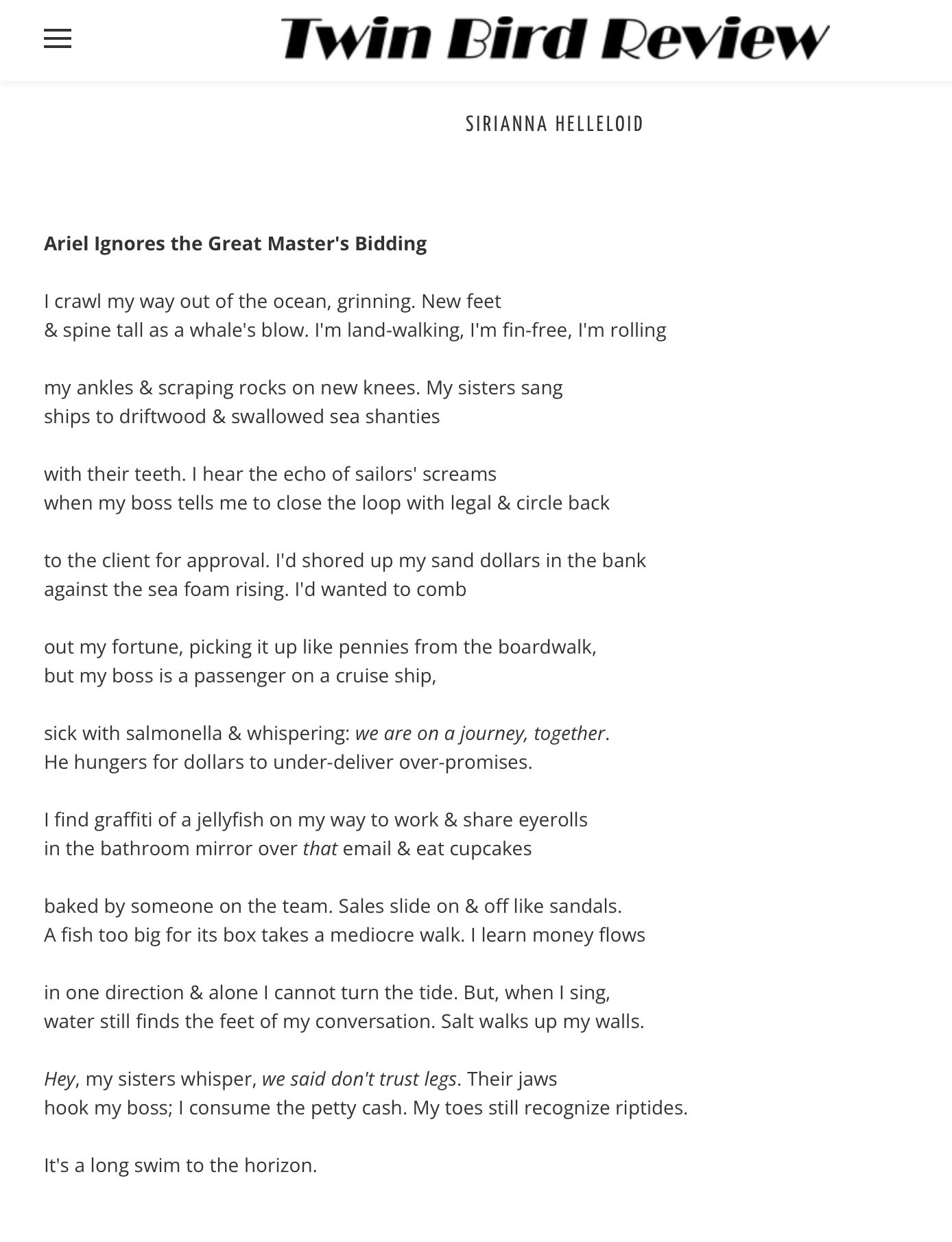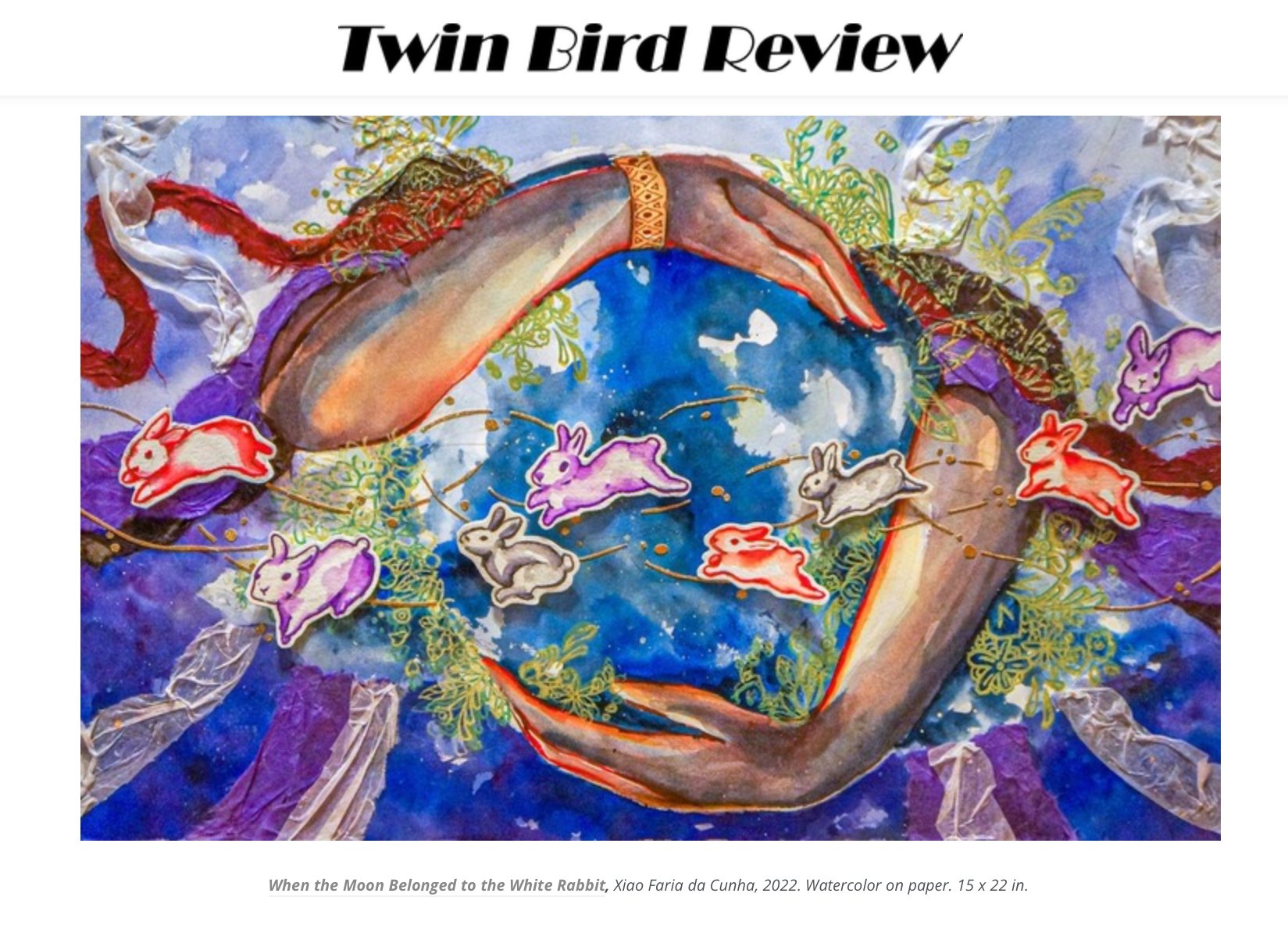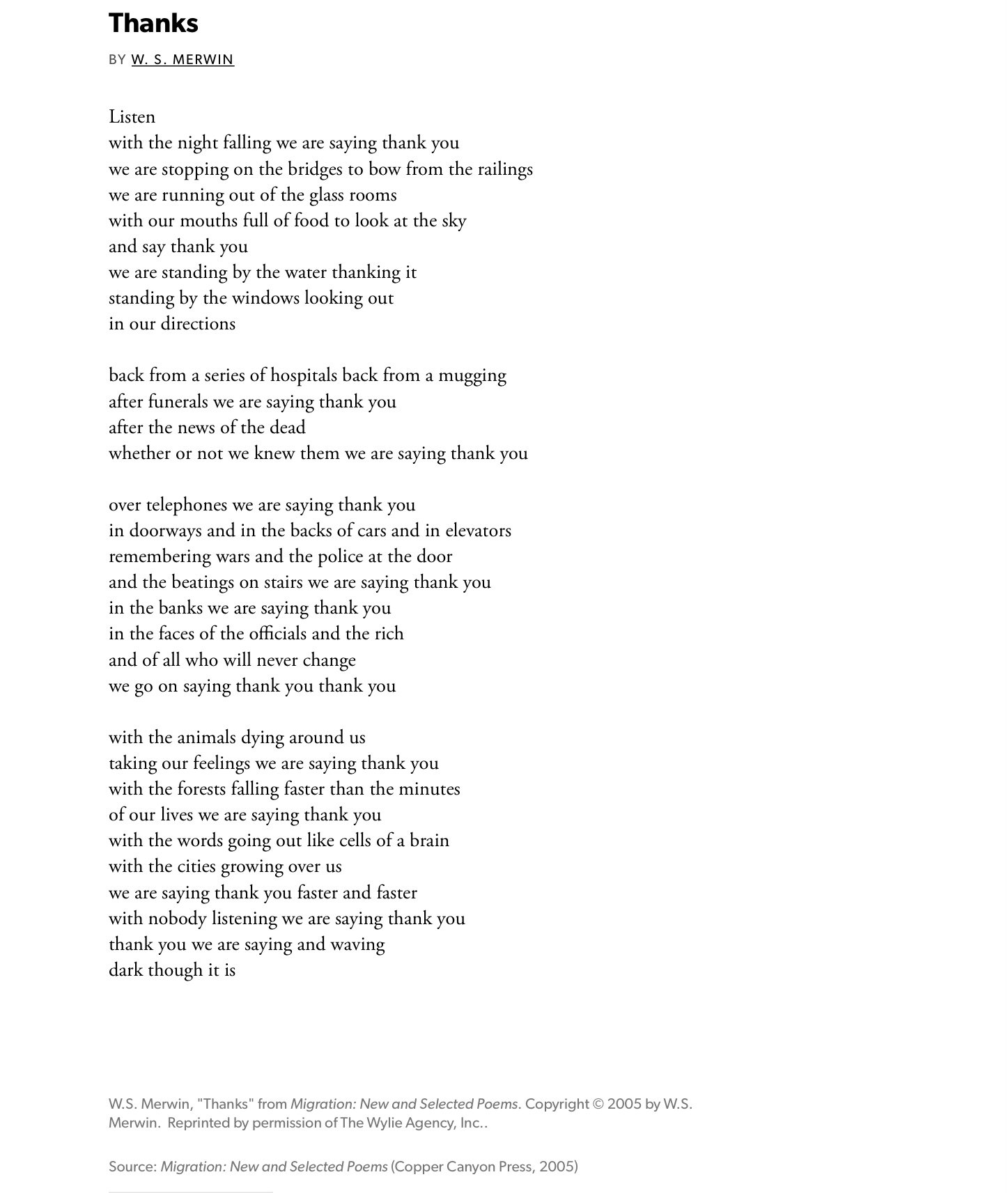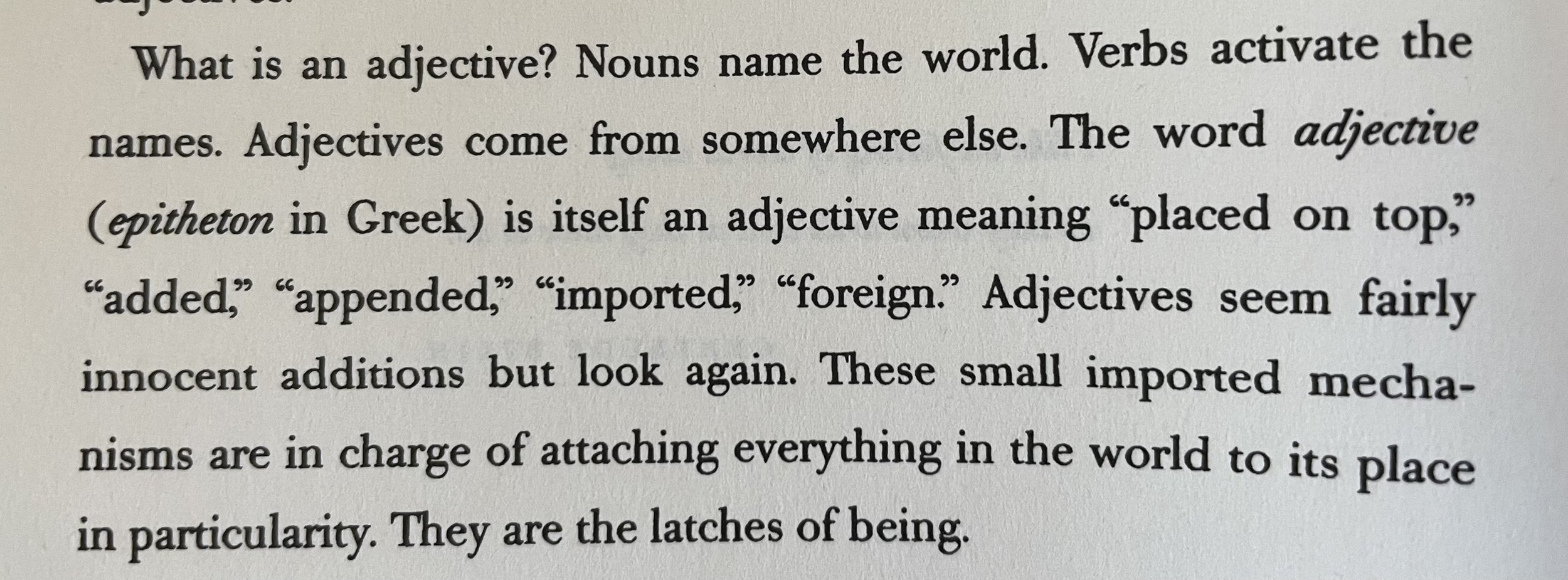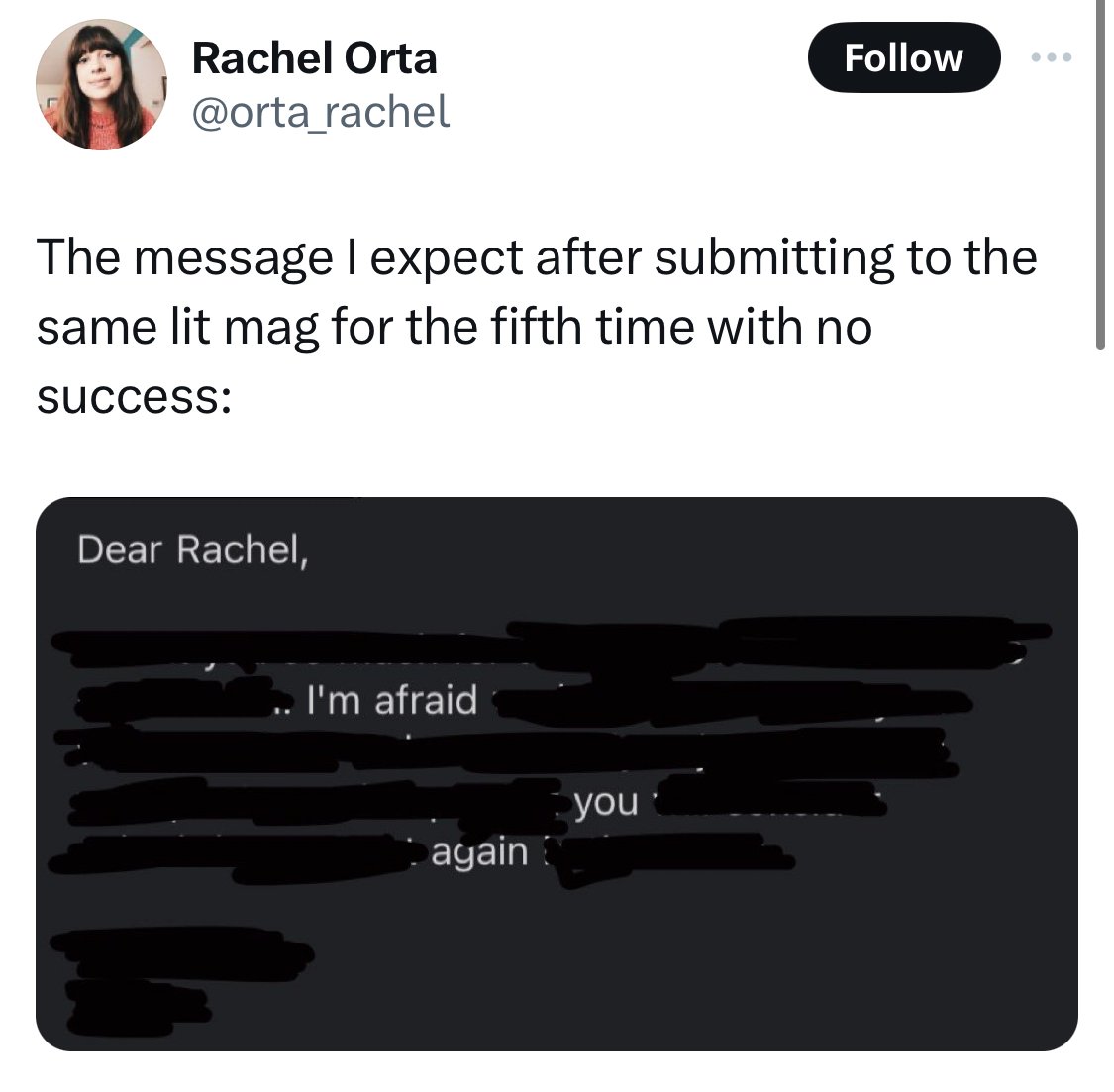Because I often get stuck in my head, in the same cycle, subject matter, style or just the same poem in slight variations, I need a new form or process. I particularly love poems that incorporate the language or framework of another field or medium. Footnote poems particularly interest me, although my own attempts are messy and incomplete. Let’s turn to Kristina Mahr’s “Footnotes” for some direction.
Let’s follow Mahr’s process for the first prompt. Write a simple (seemingly uncontroversial) statement and then explain and justify your statement (and the previous footnote) as footnotes. See where this process takes you. You will need to credit the poet.
The second prompt is to take a statement about your life or a value judgment about yourself (e.g. I was a good mother) and argue for or against that statement in the footnotes. What is “good” in this context? My daughter and I discussed how different our criteria are for what makes someone a “good” driver: safety of course but safety through caution or through quick reflexes and handling of the car?
For the last prompt, write a love poem or breakup poem and use footnotes to attempt to define every abstract emotion with a concrete image.
Bonus prompt: write a short story or poem in which this house is the setting of a fairytale or myth.
Have fun! Good luck!






